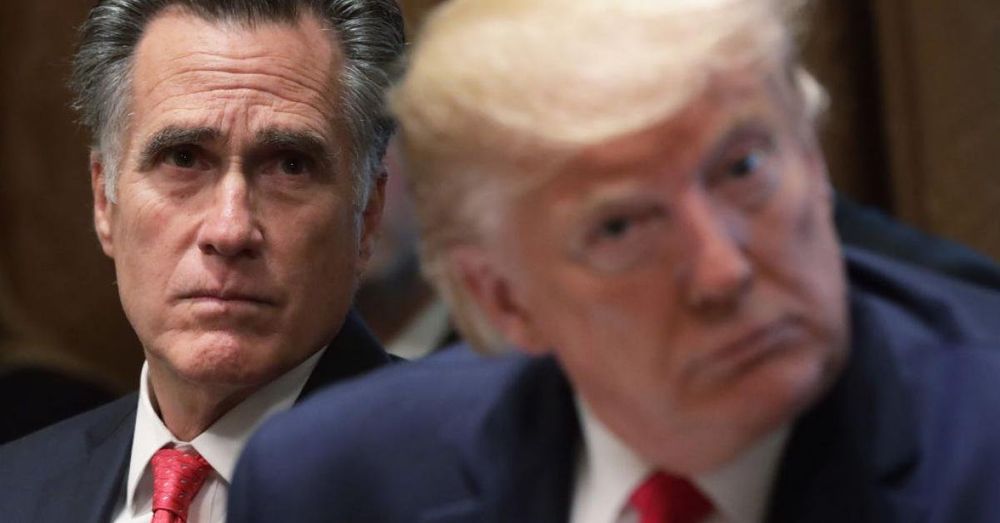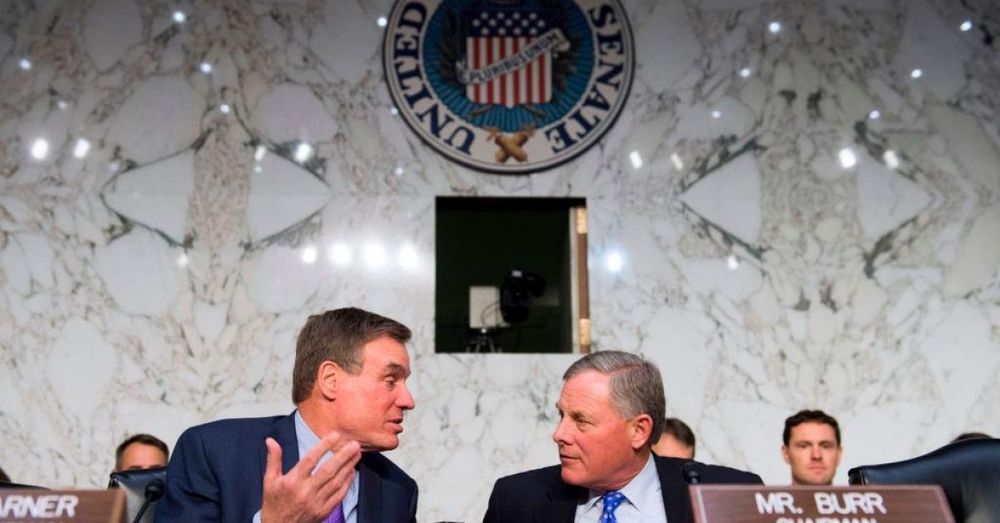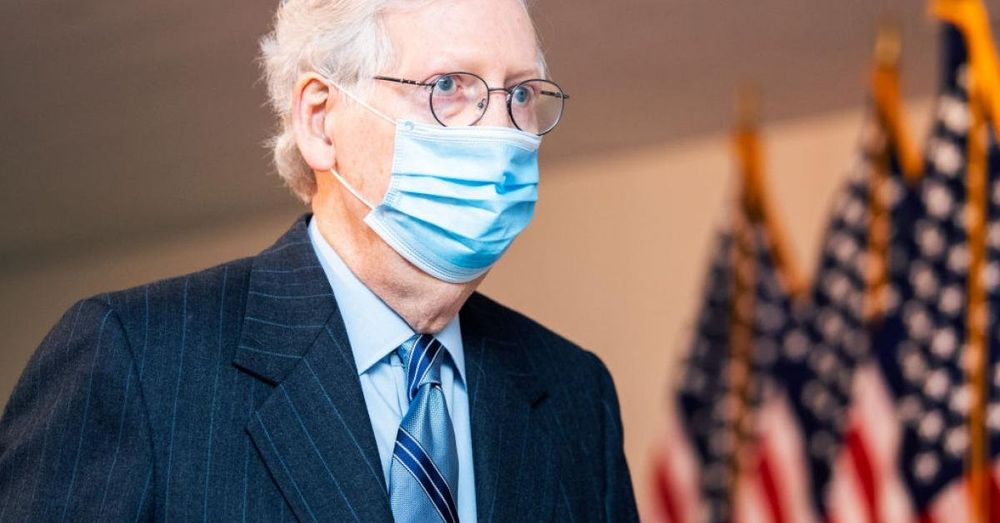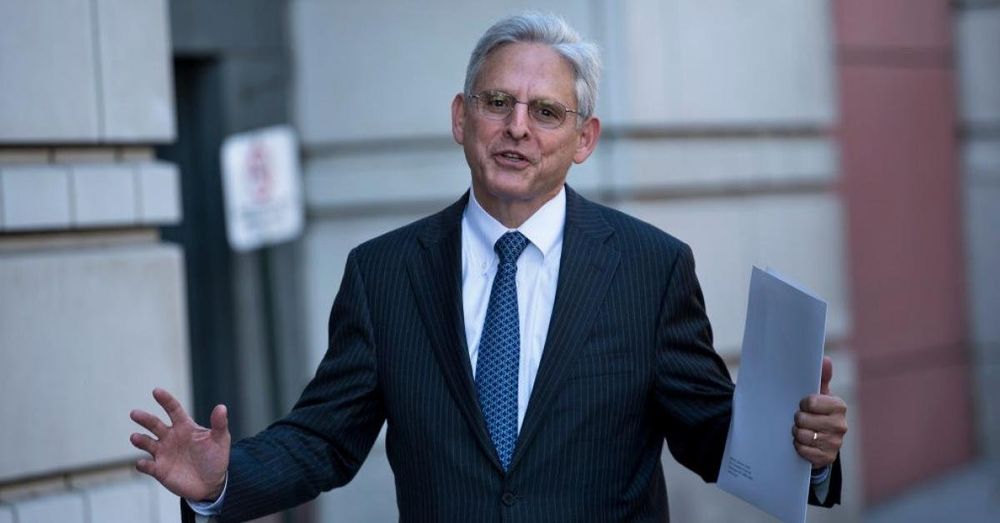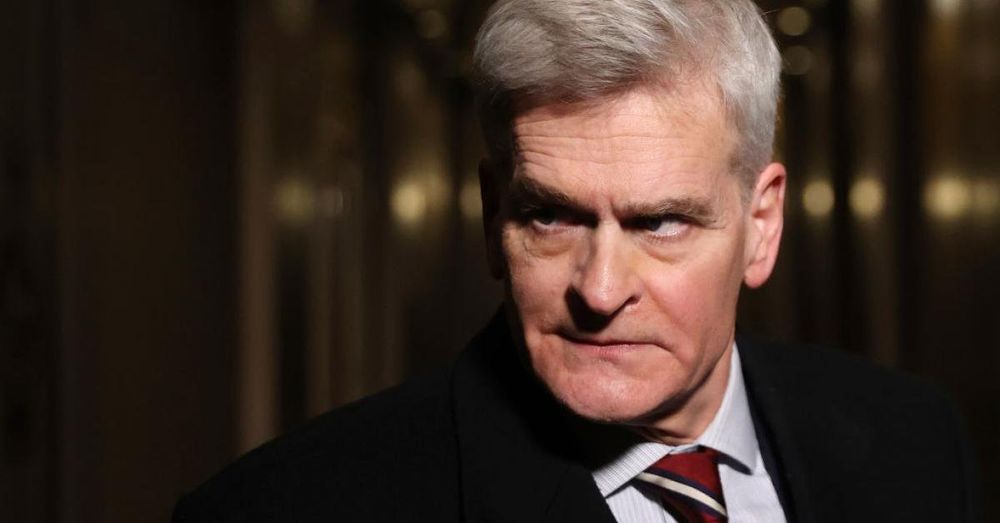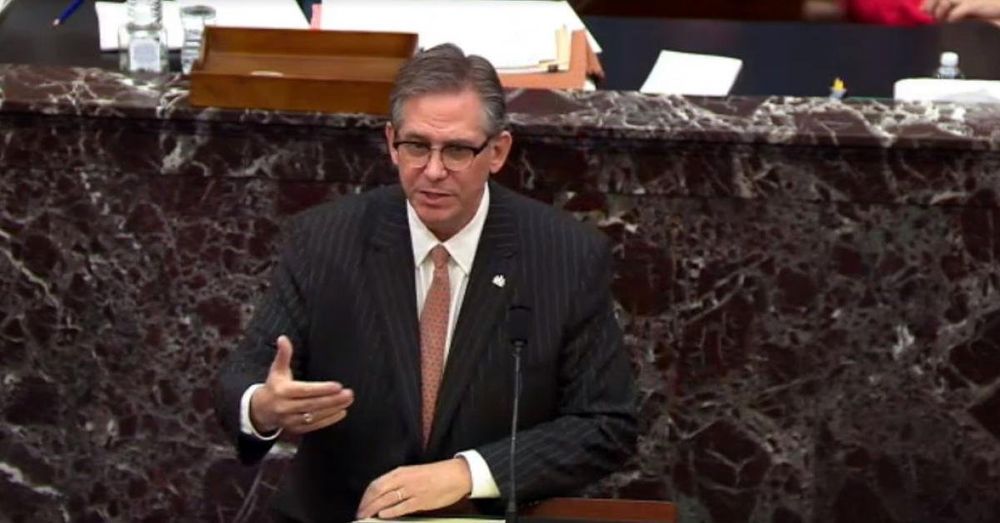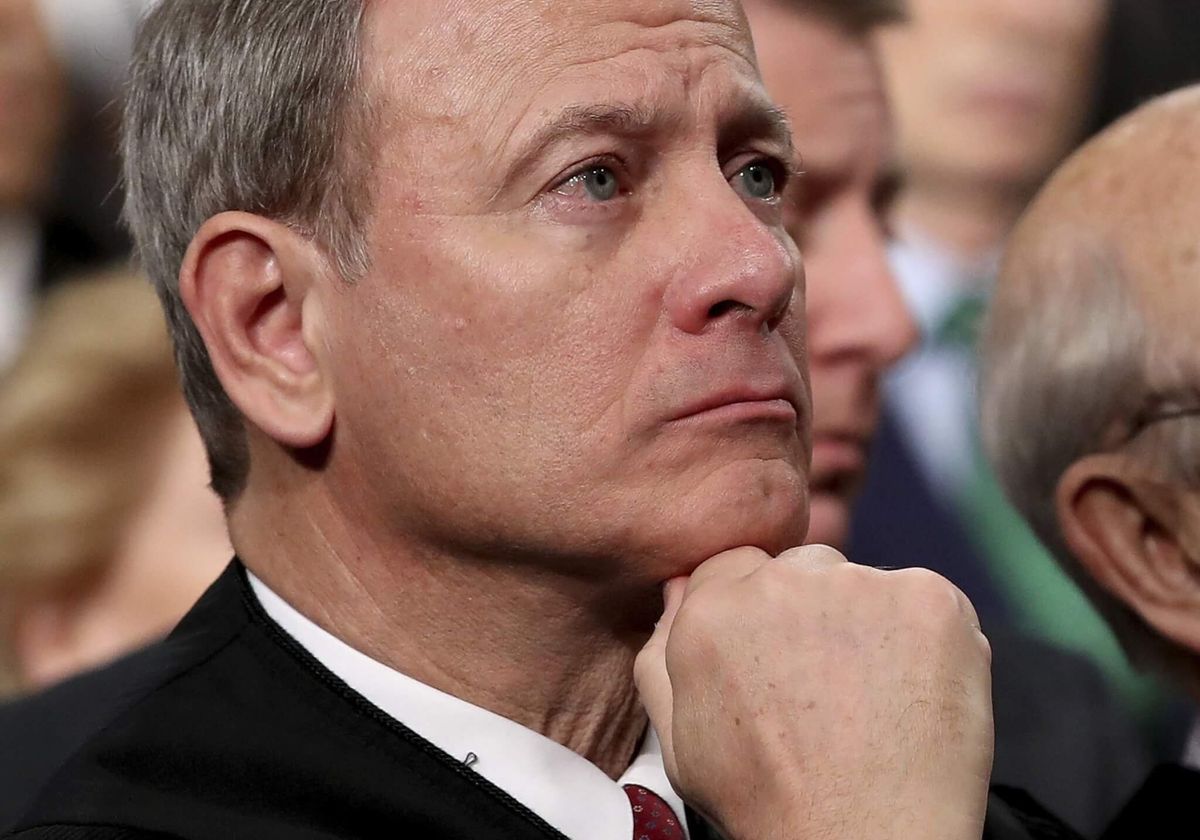
Trump Senate Impeachment Trial Thrusts Chief Justice Into Limelight
For a man fixated on the image of the U.S. Supreme Court, Chief Justice Roberts faces a unique challenge in presiding over President Donald Trump’s impeachment trial, expected next month.
For only the third time in the nation’s history, the Senate will weigh the evidence generated by the House of Representatives and determine whether to oust a sitting president from office.
As the head of the high court, Roberts, a Republican appointee, has taken pains in recent years to explain that the court is not a partisan bench, but a body of judicial “umpires” calling balls and strikes.
US House Impeaches President Trump On a near party-line vote, Democrat-controlled House approves two articles of impeachment against Trump, a Republican, making him only third US president to be impeached in country's 243-year history
Projecting an air of independence
However, as he assumes the gavel in January and guides the impeachment trial to what is almost certain to be an acquittal, Roberts must project an air of independence from the Republican majority defending the president.
“He’s undoubtedly going to recognize that any appearance of partiality to one side or the other is going to reflect to some degree on the side's view of the court of which he’s the head," said Frank Bowman, a law professor at the University of Missouri and author of a history of impeachment. "He is going to be particularly interested in preserving the integrity of the court, far more than he is in the outcome of this particular proceeding."
After Vote, Pelosi Stokes Impeachment Trial UncertaintyPelosi's comments came as a surprise in a news conference late Wednesday that was intended to express Democrats’ somber closing message after voting to impeach Trump for abuse of power and obstruction of Congress
The historic trial comes at a time when many critics are openly questioning the Supreme Court's legitimacy. These critics say the high court has become a highly politicized body, with its nine justices, appointed by Republican and Democratic presidents, often voting on matters of consequence along predictably ideological lines.
Protests grew louder after Kavanaugh appointment
The protests have grown louder since June 2018, when Justice Anthony Kennedy, a crucial swing vote on the court, retired and Trump picked Brett Kavanaugh, a more conservative jurist, as his replacement. With the Kavanaugh appointment – which came amid accusations of sexual assault – the conservatives cemented their hold on the court, spurring Democratic fears that the justices will overturn consequential legal precedents on abortion and gay rights, and rubber-stamp Trump’s controversial policies on a range of issues.
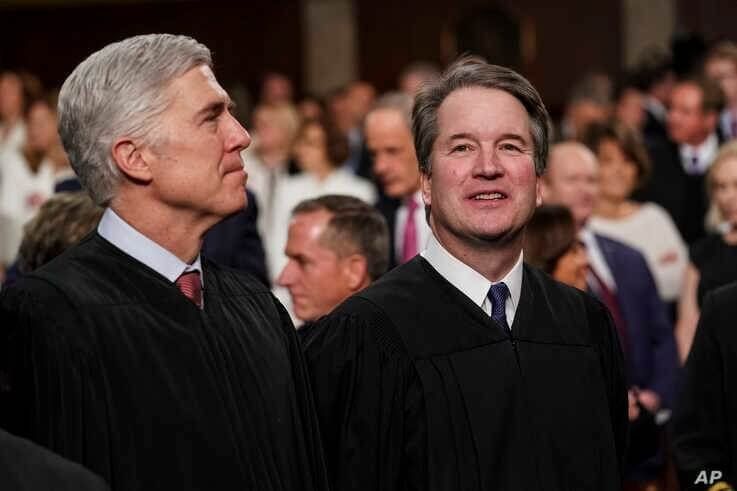
Yet Roberts, a moderate conservative with a proclivity for occasionally crossing party lines, has emerged as something of a “median” justice on the bench. While he voted in favor of Trump’s “travel ban” on several Muslim-majority countries last year, the chief justice angered many on the right when he joined the four liberals this year in rejecting a controversial administration plan to add a citizenship question to the 2020 census.
Roberts rebuked Trump
Roberts typically maintains a low profile. Now, with Trump's impeachment, Roberts is being thrust into the public eye and the awkward position of presiding over the trial of a president who once disparaged him as “an absolute disaster” and with whom he publicly clashed last year.
The quarrel with Trump happened after the president berated a federal judge who had ruled against his asylum policy as an “Obama judge,” referring to former President Barack Obama. That prompted Roberts to issue a rare public rebuke.
“We do not have Obama judges or Trump judges, Bush judges or Clinton judges,” Roberts said in a statement, referring to Trump, Obama and former Presidents George H.W. Bush, George W. Bush and Bill Clinton.
Trump fired back
That did not sit well with Trump, who fired back on Twitter that the chief was “wrong.” However, the highly unusual statement underscored the length to which the chief justice has been willing to go to defend the court’s institutional integrity and in the process secure his own legacy.
“I think it shows that Chief Justice Roberts is taking his responsibility as the presiding officer, the chief executive officer of the machinery of the federal judiciary very, very seriously," said Neil Richards, a professor at Washington University in St. Louis School of Law.
During the 1999 Clinton impeachment trial, Richards served as a clerk to then-Supreme Court Chief Justice William Rehnquist, who is Roberts' predecessor.
Rehnquist role largely ceremonial
Richards said Roberts will likely look to Rehnquist's performance for clues on how to conduct an impeachment trial.
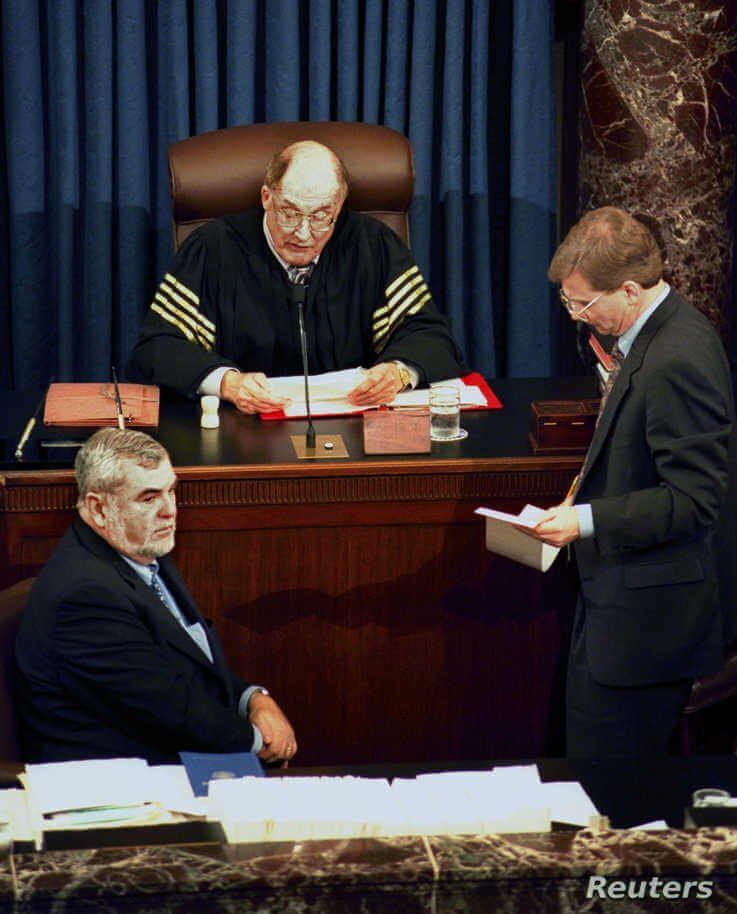
Rehnquist's role was largely ceremonial, restricted by Senate rules that permitted a simple majority of senators to override his rulings. On the rare occasion that he did issue a ruling, such as upholding a senator’s objection when a House manager addressed the senators as “jurors,” it was largely inconsequential.
“I think [Roberts] is going to realize, as Chief Justice Rehnquist did before him, that this is a slightly different kind of proceeding from the one that he’s used to presiding over at the court,” Richards said.
Senate no ordinary court
The Constitution gives the Senate the “sole power” to try all impeachments, and designates the chief justice as the presiding judge for presidential impeachment trials.
When the likely Trump trial gets underway, the Senate will be transformed into something of an impeachment court, but it will be very different from an ordinary court, with senators doubling as jurors and judges, and wielding the power to override the presiding judge on any procedural point.
That will limit the chief justice’s authority, something that Roberts will likely welcome, Bowman said.
“Beyond exerting whatever moral suasion he has, he has very little real power,” Bowman said. “And my sense is that he, like Justice Rehnquist, is going to want to keep a low profile.”
On the other hand, if the Senate agrees to new rules allowing witnesses and cross-examinations, Roberts is likely to take on a larger role, Richards said.
“By definition, there is going to be a more active chief justice just because he’s going to have to deal with objections and reluctant witnesses and claims of executive privilege of the sort that just didn’t come up in the Clinton trial,” Richards said.
McConnell says trial is a 'political process'
That scenario is far from certain. Complicating matters for Roberts, Senate Republicans have dispensed with all pretense that this will be a deliberate judicial process.
“I’m not an impartial juror. This is a political process. There is not anything judicial about it,” Senate Majority Leader Mitch McConnell said Tuesday.
Last week, McConnell, a close Trump ally, said he’ll be coordinating with the White House throughout the trial.
While not illegal, the planned coordination “certainly runs contrary to the tradition that the Senate has tried to uphold of at least appearing to represent a thoughtful deliberative, natural decision,” Bowman said.
It also puts Roberts on the spot, said Jeffrey Tulis, a political scientist at the University of Texas at Austin who has written about impeachment.
Paradoxically, however, the trial may enable the chief justice to burnish his court’s image as an apolitical institution, Tulis said.
“It will reconfirm the view that that guy is a justice, he’s not a politician,” he said.
 Trump Rallies Supporters in MichiganNext PostSeven Democratic Presidential Candidates Debating to Take on Trump
Trump Rallies Supporters in MichiganNext PostSeven Democratic Presidential Candidates Debating to Take on Trump
